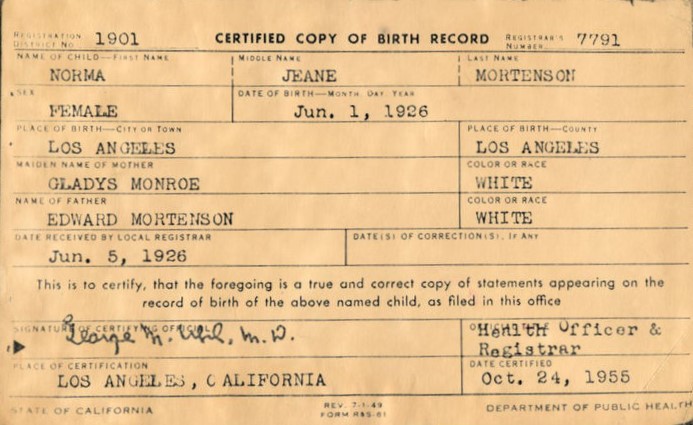
Do family historians have an opportunity to discover vibrant lives in cemeteries? Maybe so. American humorist and author Fannie Flagg’s new book, The Whole Town’s Talking, speaks to family researchers even though it is fiction. It’s a multi-generational story about a Scandinavian immigrant who emigrates to the Midwest, settles there, and helps populate a town. A unique device used in the book is having town descendants and others buried in the cemetery continue to comment about the living.It’s satisfying to think of vibrant, chatty afterlives for our ancestors in cemeteries even as many of us search to learn about the ends of their lives. Often, we have no idea where/when they died or were buried. Luckily, diligent local history research and helpful databases may provide us with church records, death certificates, and obituaries. This is critical genealogical information, as it puts a period on a person’s life. Absent information about an ancestor’s death and burial, we leave an incomplete family story.
Genealogy: Finding and Negotiating with Cemeteries
Our process is systematic. In what cemetery was the final resting place? Does it still exist/operate? Does it have additional information about our ancestors? Are there headstones that would provide us with information about other family members as well? Are there ways that we ourselves can pay it forward to help other researchers with the information we’ve..well..unearthed?It’s a delight to find our ancestors’ resting places in cemeteries that are still operational.(Neglected or defunct cemeteries provide special challenges.) Sometimes, even after we’ve located a cemetery and have found that other relatives are also buried there, cemeteries do charge fees to retrieve that information. This is especially true for large cemeteries that have thousands or many more interments.Sometimes researchers become incensed by this widely varying practice – charging them to retrieve family information. The process is easier at cemeteries that have put their interments in databases that are either online or from which they may retrieve them easily. (Many still have index cards from hundreds of years ago only. Imagine! ) But think of this: cemeteries exist day-to-day for interments, and owing to the transience of the American population, many families of those buried do not continue to pay annual fees required for cemetery upkeep through the years. Cemeteries – like most genealogical and historical institutions in 2017 – need funding.But let’s say we’ve crossed the location hurdle, have retrieved the names of the interred and have even discovered more relatives there than anticipated. Did we ask the cemetery or mausoleum if it has paperwork on an ancestor (as some actually keep death certificates, obituaries, and associated paperwork)? If we have acquired that, excellent! What happens if headstones have disappeared or were damaged over time, and we’d like to replace or erect one? Genealogy comes into play.
Honoring Our Loved Ones, and Its Challenges
Check carefully the specific cemetery provisions about enhancing grave plots or erecting headstones because different states, municipalities, church graveyards and other cemeteries may have requirements that affect this. Generally speaking, it is easier and less expensive to erect headstones or even simple “memory stones” (that have an ancestor’s name, and birth and death dates), to mark their existence, in smaller cemeteries. There, oversight is often less structured and more casual than at larger cemeteries. This can cost as little as $25. See a helpful list about cemetery considerations here. Cemetery Headstones - Rules and Regulations - Everlife MemorialsIn large urban burial grounds, such as Calvary Cemetery in Woodside, Queens, New York, where an estimated 3 million people (!) are interred in four cemeteries, the complexities increase. Erecting a stone might involve a flat fee to the cemetery plus the costs of erecting the stone with certain specifications. It can run into the thousands.Some cemeteries require deeds to the plots to be able to enhance them. But what if the deeds have been long lost? Some burial grounds require proof of genealogical information related to you and the deceased, and they may require that all living grandchildren agree or a stone may not be erected. This issue can create disagreement in families when members dissent or don’t agree upon how best to honor ancestors. In that case, a well-meaning researcher/descendant has stirred up a hornet’s next of resentments within a family unintentionally. The phrase “let the dead bury their dead” then comes to mind because of the headaches. Tip: If we find that a cemetery does require such mutual agreement, get relatives to agree up front within the family, or delay action. Would our ancestors want us quarreling bitterly over their resting places?
How You Can Pay It Forward to Recognize/Document Your Family Members
Cemetery issues often stir up strong emotions as we yearn to honor immigrants and other ancestors whose lives made our own possible. One largely hassle-free way we can both recognize our ancestors and help other family historians find them is to add newly-discovered interments to databases such as https://www.findagrave.com/ or https://billiongraves.com/. There are other such local sites. These often require that we establish individual accounts.By adding our relatives and any documented information we have about them that would help others (such as parental and marital information), we use our own genealogy research to pay it forward for others who discover them later. We can also ask other family members to consider crowdsourcing cemeteries by adding relatives who have been carefully documented as being there. (Note: Please do not add unverified ancestor information to cemeteries.) This is the ancestor “light at the end of the tunnel,” as we contribute to genealogical and historical information to pave the way for our very own descendants. Cemeteries are wonderful ancestor archives.




